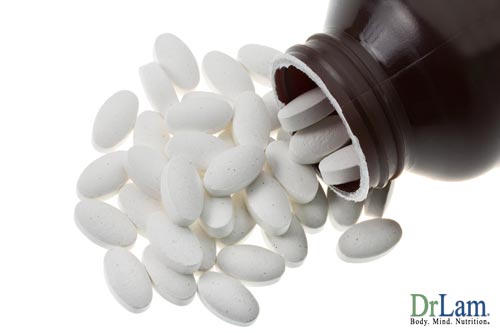 Stress affects the microbiome and can cause dysbiosis – when gut flora gets out of balance. Gut dysbiosis lays the groundwork for a myriad of health problems, including inflammation, dysregulation of metabolism, and even autoimmune reactions. Systemic enzyme therapy can help.
Stress affects the microbiome and can cause dysbiosis – when gut flora gets out of balance. Gut dysbiosis lays the groundwork for a myriad of health problems, including inflammation, dysregulation of metabolism, and even autoimmune reactions. Systemic enzyme therapy can help.
The inflammation portion of the NEM stress response is composed of the brain, immune system, the GI tract and the microbiome. In fact, most inflammatory issues begin in the gut and then spread throughout the rest of the body. When this response is constantly switched on, you will begin to suffer from chronic inflammation.
So it goes without saying that since chronic stress affects the gut and the adrenal glands, their functions are inevitably intertwined as well.
Adrenal fatigue can lead to gastrointestinal issues and vice versa. Gastrointestinal issues such as infections, maldigestion, food toxicity, excess sugar and digestive disorders can also cause (or aggravate) AFS.
In the later stages of AFS, hypersensitivity and irritability of the gut can occur as the body slow down to conserve energy. Constipation and diarrhea as two of the most common symptoms. Because cortisol levels are not sufficient at these stages, the inflammation in the GI tract is left unsuppressed and out of control.
If this continues, malabsorption becomes a problem, which can then deplete the body of nutrients and energy. If these issues are not addressed properly and quickly, GI tract disorders – such as Leaky Gut Syndrome, Irritable Bowel Syndrome, food allergies and liver dysfunction may begin to develop.
As the liver is one of the main detoxification organs, if it is compromised in any way, toxins may begin to build up in the system.
Of course, as these problems arise with digestion, absorption and detoxification, this causes more stress on the body – which then overworks the adrenals even more. This is continuous unless some changes are made to interfere with this cycle.
Digestive enzymes may be useful if you find yourself in this situation. They can relieve some of the symptoms and increase the absorption of much needed nutrients, thus helping you restore some balance to your digestive tract.
Systemic enzyme therapy can also begin to bring down the inflammation in the gut and give your adrenal glands a rest from the heavy burden of having to constantly suppress the immune response.
Due to the decline in the quality of most people’s diets, especially the standard American diet, which is highly processed and low in fresh fruits and vegetables, there is a need to be more aware of enzyme deficiency and its effects. Aging also plays a part in enzyme deficiency.
Symptoms of a deficiency in digestive enzymes include:
With a gastrointestinal tract that is not functioning optimally, the immune system begins to suffer, as much of its power comes from the gut. With lowered immunity, you are then more susceptible to disease and a slower recovery time.
This is also aggravated by the fact that the need for more digestive enzyme production can actually take away from metabolic enzyme production, affecting your entire system.
Utilizing systemic enzyme therapy and taking an enzyme formula right before eating can help with the breakdown of food, enhancing the absorption of the needed nutrients. It will also prevent the chances of bloating and fullness after a fatty meal.
 Digestive enzymes can also aid with energy conservation as it takes more energy to digest food when you are deficient in digestive enzymes.
Digestive enzymes can also aid with energy conservation as it takes more energy to digest food when you are deficient in digestive enzymes.
The most familiar go-to enzymes when there is a pancreatic deficiency are protease, pancrelipase and pancreatic amylase. They work well as digestive aids in healthy people, not just for those suffering from illnesses.
The use of digestive enzyme supplementation should not deter you from improving your diet and getting your enzymes naturally through proper nutrition.
There are several ways to do this, including:
This approach is especially useful if you have certain conditions where taking digestive enzyme formulas may interfere with your recovery or when you’ve been overdoing it with the supplements and getting diarrhea.
The vast majority of metabolic enzymes are proteolytic enzymes, or proteases. Proteolytic is a term used for hydrolytic enzymes that help with the break down of proteins into their building blocks – amino acids.
Proteolytic enzymes include serine pancreatic proteases such as trypsin and chymotrypsin, cysteine proteases (such as bromelain and papain), and other proteases found in fungi.
Enzymes such as trypsin and chymotrypsin, which can be derived from the pancreases of cattle or pigs, have been used in therapy for over one hundred years. Mostly, they have been used orally for gastrointestinal disorders, locally to remove protein clusters that might become harmful, and as anti-inflammatory or thrombolytic agents.
More specifically, cold-adapted serine proteases from the Atlantic cod have been used for inflammation, wound healing, fungal infections, acne, and other skin issues (such as eczema and psoriasis). They’ve also been used in dental hygiene.
Trypsin and chymotrypsin from mammalian sources have also been put to good use for wound healing and as anti-inflammatories.
Digestive enzyme formulas and systemic enzyme formulas will usually contain many of the same enzymes, such as bromelain and papain. The difference lies in how you take these oral formulas.
With systemic enzyme therapy, you would take the formula on an empty stomach or between meals so that it is absorbed straight into your bloodstream and directed to the cells to serve in their metabolic functions.
A medical mystery that has yet to be solved: If you look at these enzymes on a biochemical level, they are too large to cross the lining of the small intestine to enter the bloodstream, and so taking them orally would seem to be impossible for metabolic or systemic use.
But somehow they do cross, as studies have shown them to be present in the bloodstream after ingestion. How they accomplish this is still being investigated, but one theory suggests that proteolytic enzymes may increase the permeability of the mucosal epithelium, enabling their own passage into the bloodstream.
Whatever the mechanism may be, they have been shown to enhance metabolic functions when taken orally.
Pain is always a symptom of pathology underneath. Some of the gastrointestinal disorders discussed earlier cause pain in the abdomen. Some autoimmune diseases can be painful, and cancer can also cause pain. Pain of unknown origin is a symptom of chronic inflammation.
 Although there are many effective pain medications out there, you may want to consider enzymes as an alternative. They not only relieve pain, but also work on the overall health of your system to boost natural healing.
Although there are many effective pain medications out there, you may want to consider enzymes as an alternative. They not only relieve pain, but also work on the overall health of your system to boost natural healing.
For example, herpes zoster has been one of the diseases where enzymes can be helpful as part of the recovery plan. It is usually treated with an antiviral medication called Acyclovir. A double-blind test comparing the two modalities in healing herpes zoster showed hardly any differences in pain levels, side effects and even efficacy.
This indicates that therapy with systemic enzymes may be a good, as well as cheaper, alternative to acyclovir. This also holds true for older iterations of Hepatitis C treatment. Though now, thankfully, there are medications that eliminate the virus without many side effects and in less time.
Regarding inflammation, systemic enzyme therapy can help manage and prevent it in a number of ways. Proteolytic enzymes help reduce swelling of the mucous membranes and the thickness of the blood, thereby improving circulation and the supply of oxygen and nutrients. They also take away waste and debris from sites of injury, helping with wound healing and pain relief.
Inflammatory bowel disease and ulcerative colitis have been shown to respond well to systemic enzyme therapy with bromelain.
However, it is important to note that handling both inflammatory conditions and adrenal fatigue needs extra care, as some of the supplements that are used can actually worsen the situation. The weaker the body, the more at risk it becomes.
Papain, trypsin and other proteolytic enzymes have also been shown to enhance the immune system. Autoimmune diseases are associated with increased levels of immune complexes – which are formed between immune antibodies and antigens – in the blood. Enzymes help break down, or even prevent, these immune complexes that circulate in the system and inhibit healthy immune function.
© Copyright 2017 Michael Lam, M.D. All Rights Reserved.

